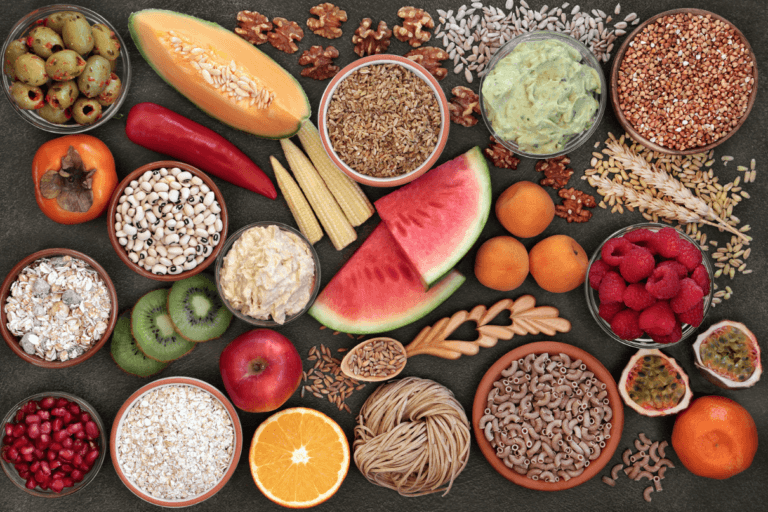
As the global population becomes increasingly health-conscious, the demand for natural, low-calorie sweeteners has skyrocketed. One such alternative that has gained immense popularity is stevia – a herb native to South America that is up to 400 times sweeter than regular sugar. Stevia has been presented as a safe, zero-calorie sugar substitute, making it a good option for health-conscious consumers looking for weight loss, diabetics, and those with obesity.
However, the safety and efficacy of stevia have been the subject of ongoing debate and research. While some studies have highlighted its potential benefits, such as improved glycemic control and antioxidant properties, others have raised concerns about potential side effects and long-term health implications.
In this article, we will look into the features of stevia, exploring its history, the science behind its sweetness and the latest research on its safety and potential health benefits. By the end, you’ll have a clear understanding of whether stevia can truly be considered a safe and viable sugar substitute.
What is stevia?
Stevia, scientifically known as Stevia rebaudiana, is a small, bushy herb native to the subtropical regions of South America, particularly Paraguay and Brazil. For centuries, indigenous communities in these regions have used the leaves of the stevia plant as a natural sweetener and for their medicinal properties.
The modern history of stevia’s global popularity began in the 1970s when Japanese researchers and food manufacturers started exploring its potential as a sugar substitute. By the 1980s, stevia had become a widely used sweetener in Japan, where it was approved for use in food and beverages. The herb’s popularity then spread to other parts of Asia, South America, and eventually, the United States.
In the United States, the journey of stevia’s acceptance as a food additive has been a long and winding one. Initially, the U.S. Food and Drug Administration (FDA) banned the use of stevia in food and beverages due to concerns over potential health risks, including the possibility of carcinogenic effects. However, after extensive research the FDA eventually recognised stevia as “generally recognised as safe” (GRAS) in 2008, paving the way for its widespread use by Americans.
Today, stevia is available in a variety of forms, including powders, liquids, and granules, and is commonly found in a wide range of food and beverage products baked goods and dairy products. Its rapid rise in popularity can be related to its unique properties as a natural, zero-calorie sweetener that does not affect blood sugar levels, making it an attractive option for health-conscious consumers, particularly those with type 2 diabetes or weight management concerns.
The science behind stevia
The sweetness of stevia is derived from a group of compounds called steviol glycosides, which are found in the leaves of the stevia plant. These glycosides, particularly rebaudioside A and stevioside, are responsible for the herb’s intense sweetness, which can be up to 400 times sweeter than regular sugar (sucrose).
The process of extracting and purifying these steviol glycosides involves steeping the stevia leaves in water and then filtering and drying the resulting liquid to produce a powdered or granulated sweetener. This extraction process is crucial, as it allows for the removal of any potential impurities or bitterness associated with the raw stevia leaves, resulting in a refined, high-purity sweetener.
Interestingly, the sweetness of stevia is not due to its interaction with the same taste receptors as sugar. Instead, steviol glycosides bind to and activate a specific set of sweet taste receptors on the tongue, triggering the perception of sweetness. This unique mechanism of action is what sets stevia apart from other artificial sweeteners, which often rely on different pathways to elicit a sweet taste.
The fact that stevia’s sweetness is derived from natural plant compounds, rather than synthetic or artificial additives, has been a major factor in its growing popularity as a sugar substitute. Many consumers are drawn to the idea of using a “natural” sweetener, which aligns with the broader trend towards more mindful and sustainable food choices.
Safety considerations
The regulatory journey of stevia has been a complex one, with different countries and governing bodies taking varying approaches to its approval and use as a food additive.
In the United States, as mentioned earlier, the FDA initially banned the use of stevia in food and beverage products due to concerns over potential health risks. However, after extensive research and review, the agency eventually approved the use of highly purified steviol glycosides as a generally recognised safe (GRAS) sweetener in 2008. This designation means that the FDA has determined these steviol glycoside extracts to be safe for human consumption when used under specified guidelines.
Similarly, the European Union approved the use of steviol glycosides as a food additive in 2011, setting an acceptable daily intake (ADI) of 4 milligrams per kilogram of body weight. This ADI is based on the assumption that an average adult would need to consume approximately 27 packets of stevia per day to reach the maximum safe level.
In other parts of the world, the regulatory landscape has been more varied. For example, stevia is widely used and accepted as a sweetener in countries like Japan, South Korea, and many parts of South America, where it has been approved for use in food and beverage products for decades. However, in some regions, such as Canada, the approval process for stevia has been more gradual and cautious.
There are still some lingering concerns and ongoing research regarding the long-term safety of stevia consumption. Some studies have suggested that stevia sweeteners may have the potential to disrupt hormone function or negatively impact the gut microbiome, though the evidence is still inconclusive.
As with any food additive or sweetener, it is also important to exercise caution and moderation when incorporating stevia into one’s diet, as excessive consumption could potentially lead to adverse effects, despite the generally recognised safety of the sweetener.
Potential health benefits of stevia
While the main appeal of stevia lies in its role as a zero-calorie, natural sugar substitute, developing research suggests that the herb may also offer some potential improvement in some health conditions.
Improved glycemic control
One of the most well-studied potential effects of stevia is its ability to help manage blood sugar levels. Several studies have found that the consumption of stevia or steviol glycosides can help improve blood glucose levels, particularly in individuals with type 2 diabetes or prediabetes.
The mechanism behind this effect is thought to be related to the way steviol glycosides interact with the body’s insulin and glucose metabolism pathways. Some research has indicated that stevia may enhance insulin secretion, improve insulin sensitivity, and reduce the absorption of glucose in the gut, all of which can contribute to better blood sugar regulation.
Antioxidant and anti-inflammatory properties
In addition to its effects on blood sugar, stevia has also been studied for its potential antioxidant and anti-inflammatory properties. Certain compounds found in the stevia plant, such as flavonoids and phenolic acids, have been shown to possess potent antioxidant activity, which could help protect the body against oxidative stress and inflammation.
Some studies have suggested that stevia may have the ability to reduce markers of inflammation, such as C-reactive protein (CRP) and interleukin-6 (IL-6), which have been linked to the development of various chronic diseases, including cardiovascular disease, cancer, and neurodegenerative disorders.
Benefits for kidney health
Another area of interest in the potential health benefits of stevia is its impact on kidney function. Some research has indicated that steviol glycosides may have a protective effect on the kidneys, potentially reducing the risk of kidney stones and improving overall kidney health.
The proposed mechanism behind this effect is related to stevia’s ability to inhibit the activity of an enzyme called oxalate decarboxylase, which plays a role in the formation of kidney stones. By reducing oxalate levels, stevia may help prevent the crystallization and deposition of these compounds in the kidneys.
It’s important to note that while these potential health benefits of stevia are intriguing, the research is still relatively limited, and more long-term, large-scale studies are needed to fully understand the extent and mechanisms of these effects. Additionally, the specific health outcomes may vary depending on factors such as the dose, frequency, and form of stevia consumption.
Potential drawbacks and concerns
While the growing popularity of stevia as a sugar substitute is undeniable, there are also some potential drawbacks and concerns that consumers should be aware of.
Gut health
Some studies have suggested that the consumption of stevia or steviol glycosides may disrupt the balance of beneficial gut bacteria, leading to an imbalance in the gut microbiome.
However, the evidence on this topic is mixed, with other studies finding no significant negative effects on gut health. The long-term implications of stevia’s impact on the gut microbiome are still not fully understood, and more research is needed to clarify this potential issue.
Hormone disruption
A 2016 study found that certain steviol glycosides may have the ability to interfere with the activity of the endocrine system, particularly the thyroid gland.
While these findings are concerning, it’s important to note that the study was conducted in vitro (in a laboratory setting) and the relevance to real-world consumption of stevia is still unclear. More research is needed to determine the potential impact of stevia on human hormonal health, especially with regards to long-term use.
Conclusion
Stevia has undoubtedly emerged as a popular and promising alternative to traditional sugar intake and artificial sweeteners. Its natural origins, zero-calorie profile, and potential health benefits have made it an attractive option for health-conscious consumers. However, the ongoing research surrounding stevia highlights the need for cautious and informed use.
While the current evidence suggests that stevia, when consumed in moderation and its highly purified form, is generally safe for most people, the long-term implications of its use, particularly regarding gut health and hormone function need further research. Consumers should select high-quality stevia products and be mindful of their overall consumption levels.
Ultimately, the decision to incorporate stevia into one’s diet should be made in consultation with healthcare professionals, taking into account individual health status, dietary needs, and personal preferences.
Sources
- Effects of stevia on glycemic and lipid profile of type 2 diabetic patients: A randomized controlled trial – PMC
- Is Stevia a Safe Alternative to Artificial Sweeteners?
- Stevia: What Is It and Is It Healthy?
NowPatient has taken all reasonable steps to ensure that all material is factually accurate, complete, and current. However, the knowledge and experience of a qualified healthcare professional should always be sought after instead of using the information on this page. Before taking any drug, you should always speak to your doctor or another qualified healthcare provider.
The information provided here about medications is subject to change and is not meant to include all uses, precautions, warnings, directions, drug interactions, allergic reactions, or negative effects. The absence of warnings or other information for a particular medication does not imply that the medication or medication combination is appropriate for all patients or for all possible purposes.









